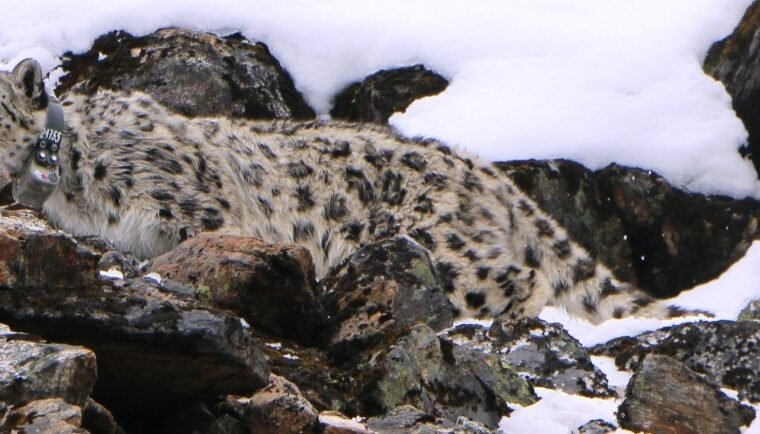Kathmandu, Oct 23: The 11th International Snow Leopard Day is being observed today to increase public awareness for safeguarding snow leopard.
The snow leopard which is only found in 12 countries of the globe is considered an indicator of fair mountainous ecology.
The theme of the day for the year 2024 is ‘Safeguarding Snow Leopard Habitats for Future Generations’. This theme emphasizes the critical importance of protecting the natural habitats of snow leopards to ensure their survival and the health of mountain ecosystems.
The Ministry of Forest and Environment is marking the day by organizing several programmes today. The Ministry’s Department of National Parks and Wildlife Conservation is releasing the snow leopards survey results of Kanchenjunga Conservation areas.
Director General of the Department, Dr Ram Chandra Kandel informed that the snow leopard study report of Dolpa national park will be made public and the photo frame of the wild yak taken inside Dolpa national park will be unveiled.
He said climate change has affected the high mountainous regions more and its impact has reduced the habitat of snow leopards. He further said the habitat loss has led to a decrease in its food species.
“Nearly 60 per cent of the snow leopard habitat is outside the park and such habitats are being fragmented”, he shared, adding, “Additionally, there are other challenges such as entrapping snow leopard, adding poison to the diet, geographical difficulties, lack of proper technology, human resource and budget crunch for effective monitoring”.
Pointing out the need for cooperation and coordination among the three levels of government for the conservation of snow leopard, DG Dr Kandel said that the Department has been conducting surveys to spread awareness among the local community, monitor it and know about its condition, challenges and solutions.
“As a result, there has been a slight decrease in smuggling,” he said. The Department has been helping to build a safe shed to protect the sheep, goats and sparrows of the locals from snow leopards.
Snow leopards are usually found at an altitude of 540 to 5,000 meters above sea level. Snow leopards have been listed by the IUCN as a global risk on the Red List.
Snow leopards are estimated to be between 300 and 500 snow leopards, an important part of the health ecosystem in the high mountainous region.
It is estimated that there are about 300 to 500 snow leopards in Nepal and about 4,000 to 6,500 in the world.





